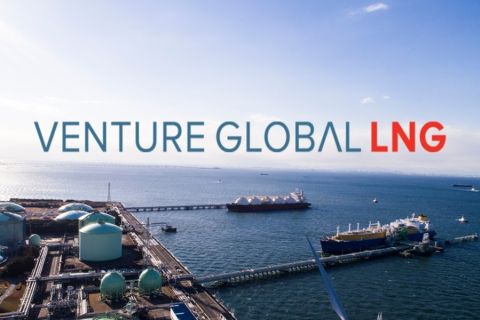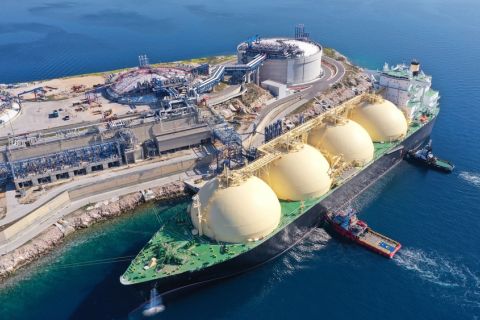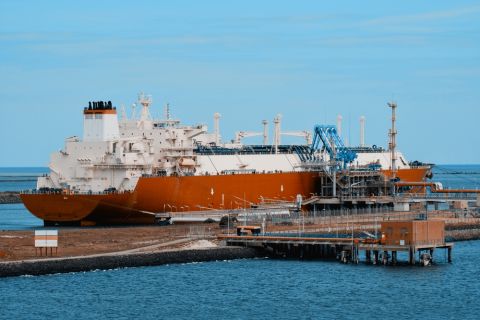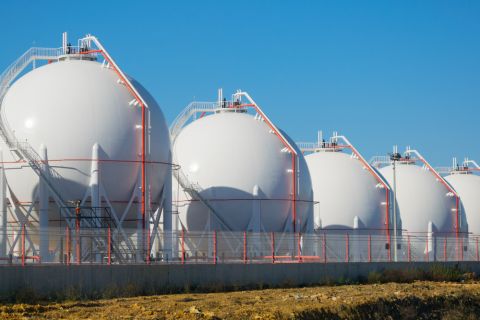The shale gale has provided opportunities to many companies and industries in the past decade, benefiting producers, midstream operators, petrochemical producers and utilities. In the last few years, some companies have realized even more opportunities as they expand operations.
The midstream has become an especially attractive domain for producers. In the past, producers typically sought to sell their midstream assets as soon as possible to recoup capex costs and fund more drilling, but the increasing popularity
of master limited partnership (MLP) investments has resulted in more producers spinning off midstream operations into MLPs.
The options presented by the plethora of gas and liquids produced in the Marcellus and Utica shales are in themselves a great provider of new business. EQT capitalized on its status as one of the largest acreage holders and producers in the Appalachian basin by helping to build EQT Midstream Partners, an MLP spinoff formed in 2012, into one of the largest midstream operators in the region.
“Our substantial midstream business was built to support this growing production and capitalize on our legacy pipeline assets,” Randy Crawford, EQT Midstream Partners’ executive vice president and chief operating officer, said in a presentation at Hart Energy’s recent Marcellus- Utica Midstream Conference in Pittsburgh. “The cornerstone of our assets is the Equitrans system, which was originally designed to bring gas up through interstate pipelines into Pittsburgh to serve the industrial and retail market demand.
“The Marcellus boom caused us to re-engineer this pipeline and turn it around and export it to the same interstate pipelines. We expect capacity to be five times greater than it was five years ago by year’s end. We not only serve EQT, but a whole host of others, including firm contracts with Antero, Range, Rice Energy, Magnum Hunter, XTO and many more. This pipeline isn’t a bullet point from A to B—we are able to find producers the homes they want for their production,” he said.
The MLP currently holds 25% of EQT’s midstream assets, with more coming along, including organic projects.
“EQT has great experience in dealing with the challenges in this region, including the weather, the terrain and the regulatory environment,” Crawford said.
Experience in the region matters a great deal more because of these unique challenges. Like the Bakken, which is also located in a harsh-weather area of the country, the demands presented by these plays are different than those in warmer climates with more roads and newer infrastructure, and there is also a stricter regulatory structure in the Northeast. The company’s experience has allowed it to more actively pursue third-party business.
“The Marcellus has changed the natural gas market dynamics significantly. It is now fully servicing the Northeastern markets with its gas demand and everyone, including us, is now focused on trying to get this prolific supply out to other markets. This will require a great deal of infrastructure with estimates of up to $20 billion to be spent through 2020. It’s become much more important for Marcellus and Utica producers to have multiple options to get their gas to markets. It is no longer appropriate to rely on just one outlet for your production,” he said.
To meet this demand, EQT Midstream is extending and expanding the Equitrans system. The 2012 completion of the Sunrise Pipeline was the system’s first expansion. This project used existing rights-of-way to loop 42 miles of pipe on the western portion of the Equitrans system. Crawford said that once the pipeline’s compression expansion is complete later this year, the pipeline will have the capacity to move nearly 1 billion cubic feet (Bcf) per day of gas.
“We were able to use EQT as an anchor shipper on the project and then upsize it to include third parties, which has really driven economies of scale. Two-thirds of capacity is reserved for EQT and one-third for third-party customers. This allowed us to reduce the cost of the project and increase the netback to our customers," he said.
Recommended Reading
Venture Global Seeks FERC Actions on LNG Projects with Sense of Urgency
2024-02-21 - Venture Global files requests with the Federal Energy Regulatory Commission for Calcasieu Pass 1 and 2 before a potential vacancy on the commission brings approvals to a standstill.
The Problem with the Pause: US LNG Trade Gets Political
2024-02-13 - Industry leaders worry that the DOE’s suspension of approvals for LNG projects will persuade global customers to seek other suppliers, wreaking havoc on energy security.
Hirs: LNG Plan is a Global Fail
2024-03-13 - Only by expanding U.S. LNG output can we provide the certainty that customers require to build new gas power plants, says Ed Hirs.
Everywhere All at Once: Woodside CEO Touts Current Global Portfolio
2024-03-05 - Meg O’Neill, the CEO of Australian energy giant Woodside Energy, is overseeing the “next wave” of growth projects around the globe, including developments in the Gulf of Mexico, offshore Senegal and further LNG expansion.
Wanted: National Gas Strategy for Utilities, LNG
2024-02-07 - Chesapeake CEO Nick Dell’Osso and Mercator Energy President John Harpole, speaking at NAPE, said some government decision-makers have yet to catch on to changes spreading across the natural gas market.





